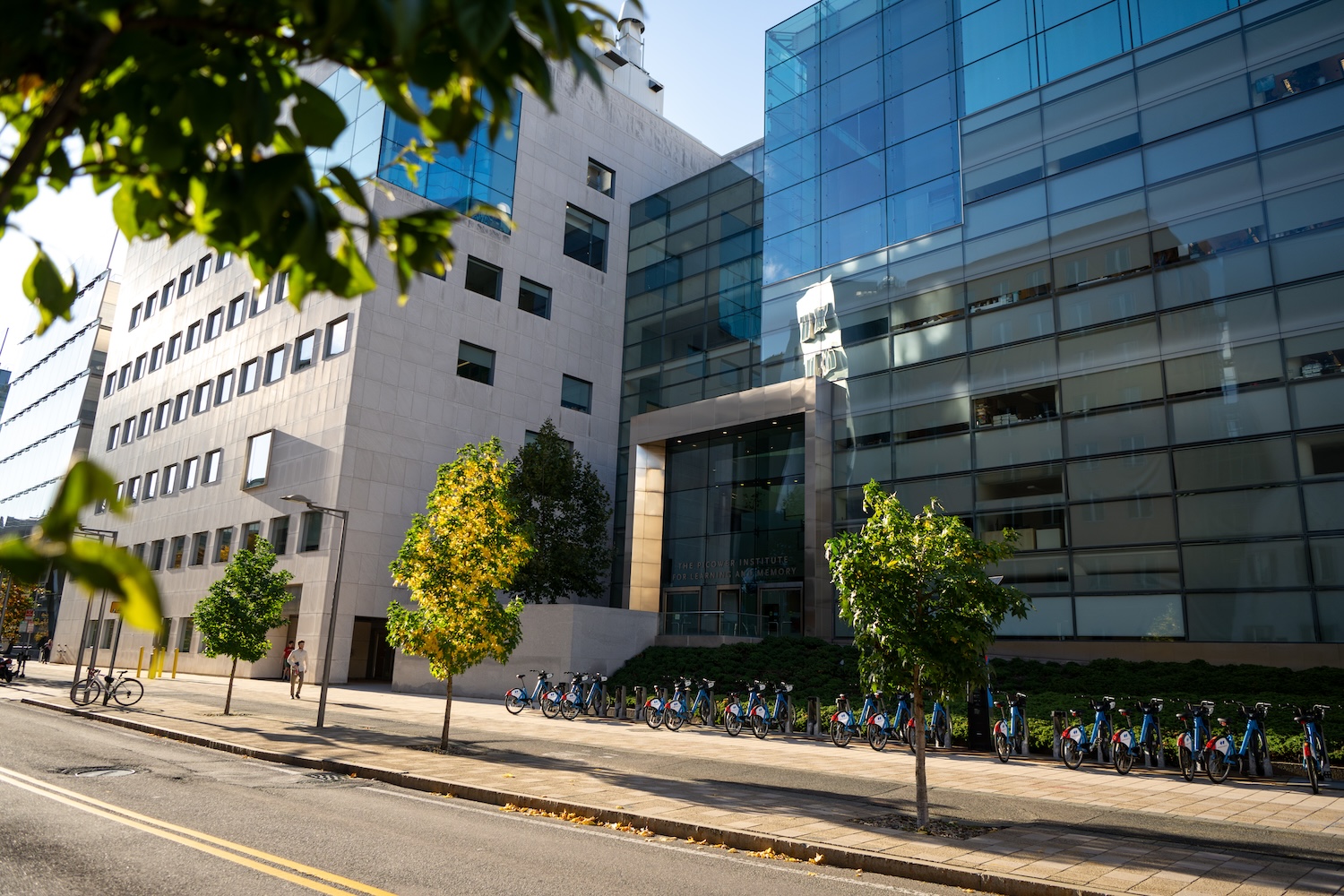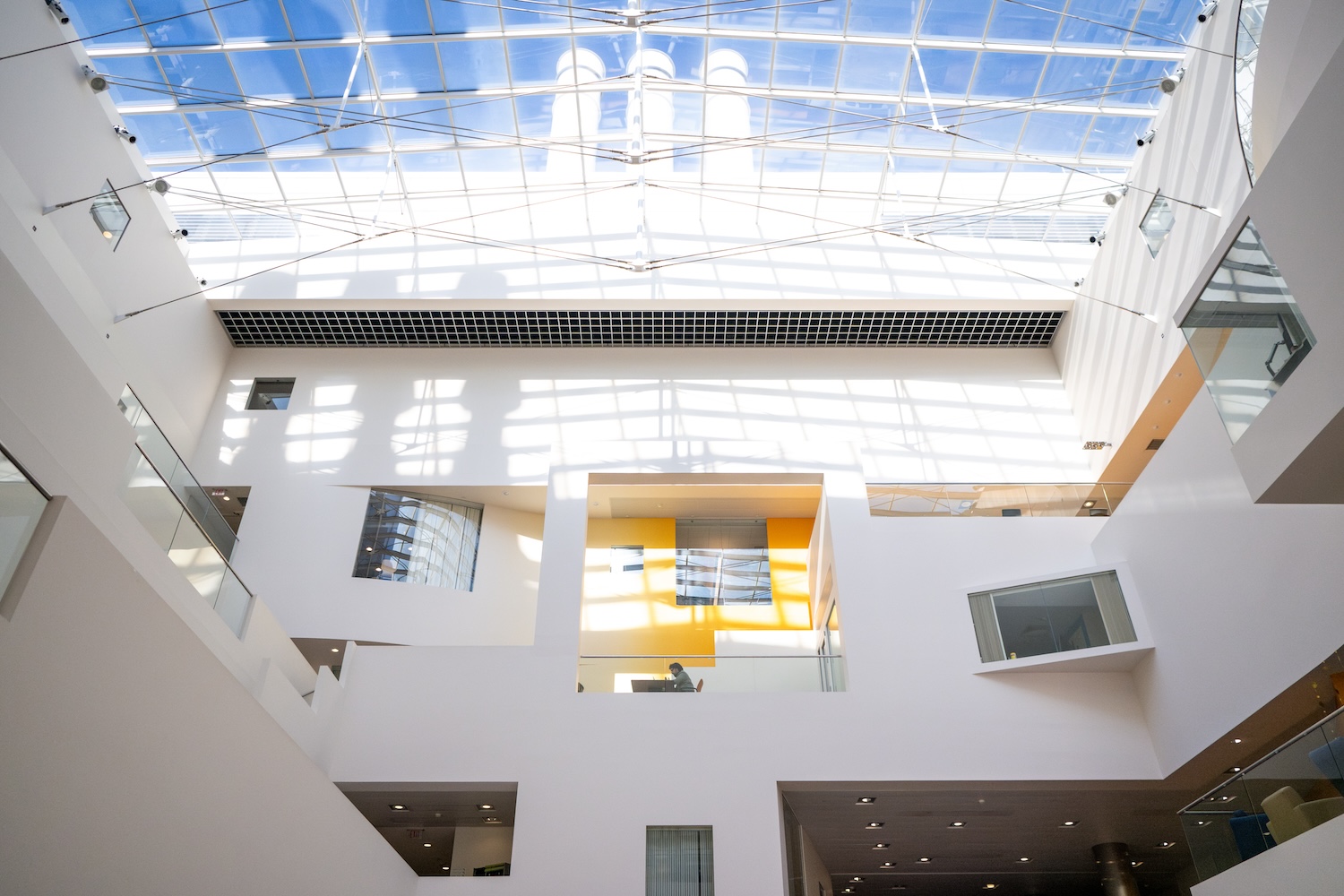Building 46

The MIT Department of Brain and Cognitive Sciences is unique on the MIT campus in that nearly all of our research and academic activity happens in one place, Building 46, a state-of-the-art facility designed to support groundbreaking science.
Located at the corner of Main and Vassar Streets, Building 46 houses:
The Department of Brain and Cognitive Sciences (BCS), the academic home of brain science at MIT. BCS, part of the MIT School of Science, administers the undergraduate Course 9 (Brain and Cognitive Sciences) and Course 6-9 (Computation and Cognition, in partnership with the Department of Electrical Engineering and Computer Science). It also manages a doctoral program with areas of focus in cognitive neuroscience, systems neuroscience, cellular and molecular neuroscience, and computation. The department is also the base for a robust research program aimed at reverse engineering the brain to understand the mind.
The McGovern Institute for Brain Research, founded in 2000 with a mission of understanding the brain and to applying that knowledge to improve human health and well-being. To meet this challenge, McGovern scientists and engineers invent tools and leverage the power of artificial intelligence to enrich how we study, understand, and heal the brain. The McGovern Institute is home to the Poitras Center for Psychiatric Disorders Research, which catalyzes research addressing the root causes of psychiatric disorders and supports partnerships with mental health clinicians.
The Picower Institute for Learning and Memory, founded in 1994 as the Center for Learning and Memory to study the (then) largely-unknown mechanisms of learning and memory. A $50 million gift from the Picower Foundation in 2002 created the Picower Institute. Picower researchers have made breakthrough discoveries in the encoding of memory and learning, Alzheimer's disease, and more. The Picower Institute is also home to the Aging Brain Initiative and the Alana Down Syndrome Research Center.
The Simons Center for the Social Brain, created in 2011 to advance research on autism by building collaboration and supporting research.
The Yang Tan Collective, focused on accelerating collaboration and translating basic science, research, and engineering into transformational strategies to achieve mens sana in corpore sano: a healthy mind in a healthy body. The Collective is home to six distinct research centers dedicated to pioneering high-risk research in fields such as computational neuroscience, molecular therapeutics, and brain-body interactions, as well as a competitive graduate and postdoctoral fellowship program.
Within our laboratories, the BCS community has access to the latest technology, from gene manipulation and multi-electrode recording, to functional brain imaging and optogenetics, CLARITY, and CRISPR. We use top-of-the-line equipment to conduct our work, including MEG and fMRI scanning machines, a high-density micro arraying device, and multiple Beowulf clusters for parallel computation.
Building 46 has several core facilities to facilitate access to these and other technologies.
There is an exciting synergy here, with students and scientists making connections and working across disciplines. It creates a fertile environment of innovation ideally suited for our work: finding answers to the most important questions about the human brain.


